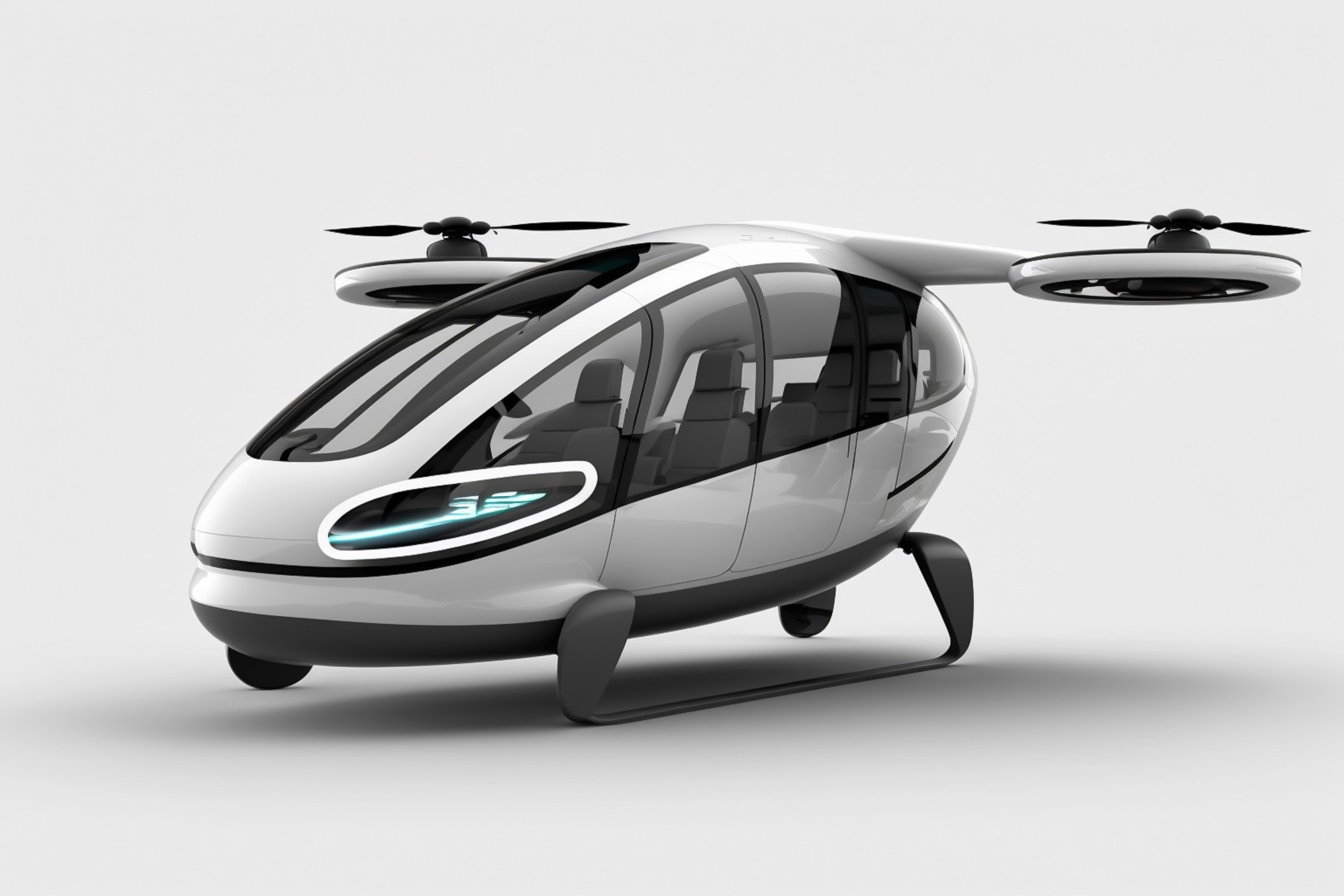How eVTOLs Will Revolutionize Mobility, Transform Industries, and Create New Opportunities

The imminent arrival of electric vertical takeoff and landing (eVTOL) vehicles is poised to reshape the mobility landscape profoundly. With startups like Joby Aviation leading the charge, the promise of air taxis for urban and regional transportation could disrupt traditional commuting models, impact a wide range of industries, and spark the creation of entirely new sectors. This paradigm shift in mobility may also amplify the potential of the knowledge economy, where talent and opportunities are no longer bound by geographic constraints.
eVTOLs, designed for rapid, safe, and efficient transportation, mark a new era in urban and regional mobility. Joby Aviation, for instance, is preparing to launch its eVTOL services in major metropolitan areas such as New York, Los Angeles, Dubai, and Abu Dhabi by 2025. Supported by major partnerships with Delta Air Lines and Uber, as well as a $131 million contract with the Department of Defense, Joby is at the forefront of this transformative movement.
The introduction of eVTOLs will allow individuals to commute long distances in minutes, drastically reducing the time spent traveling within and between cities. This development will:
Decouple Living and Working Locations: People will no longer need to live near their workplaces. Remote, picturesque locations could become the new suburban hubs as eVTOLs make daily commutes of hundreds of kilometers feasible.
Urban Decongestion: With air taxis reducing dependency on ground transportation, cities could experience a significant decrease in traffic congestion and pollution.
Regional Accessibility: eVTOLs can connect remote and underserved areas, integrating them into larger economic ecosystems and driving regional development.
The implications of eVTOLs go far beyond transportation, with wide-ranging effects on numerous industries:
Real Estate:
Urban sprawl may take on a new meaning as distant regions become viable residential options.
Commercial real estate in city centers may face a decline in demand as work decentralizes.
Employment and Recruitment:
Employers will no longer be limited to local talent pools, enabling global hiring for even the most location-sensitive roles.
Flexible work models will become the norm, with eVTOLs bridging the gap between remote and on-site work.
Tourism and Hospitality:
Easier access to remote destinations could drive tourism to new heights.
Short-haul international travel could see a resurgence, competing with traditional aviation.
Healthcare and Emergency Services:
eVTOLs can revolutionize emergency medical services by providing rapid transportation of patients, organs, and medical supplies.
Supply Chain and Logistics:
Last-mile delivery services could be transformed, particularly for high-value or time-sensitive goods.
Aerospace and Manufacturing:
The rise of eVTOLs will create demand for specialized manufacturing, maintenance, and software solutions tailored to this new form of transportation.
The eVTOL revolution could give birth to entirely new industries:
Vertiport Infrastructure: Development of dedicated eVTOL landing and charging stations in urban and rural areas.
Air Traffic Management for eVTOLs: Creating systems to manage the influx of low-altitude air traffic.
Experience-Centric Tourism: Companies offering scenic aerial tours and experiences using eVTOLs.
As eVTOLs dismantle geographical barriers, the knowledge economy will thrive. Talent from anywhere in the world can contribute to projects without the limitations of physical presence. This mobility revolution aligns seamlessly with the AiDOOS Virtual Delivery Center (VDC) model, enabling:
Seamless Talent Access: Organizations can tap into a global talent pool, ensuring the right expertise for every project.
Cost Optimization: Reduced need for physical relocation and in-office setups.
Flexible Work Ecosystems: Teams can operate fluidly across borders, adapting to project needs in real time.
While eVTOLs offer immense promise, they will also challenge established norms and disrupt traditional industries. For instance:
Mass Transit Systems: Public transportation providers may need to reinvent their services to compete.
Automotive Industry: With reduced reliance on cars for commuting, manufacturers may shift focus to recreational and utility vehicles.
Regulatory and Safety Challenges: Governments will need to evolve regulatory frameworks to address the unique demands of eVTOLs.
The eVTOL revolution is not merely about faster commutes; it’s about reimagining how we live, work, and connect. Industries will need to adapt or risk obsolescence, while new sectors and opportunities will arise in response to this mobility transformation. For organizations like AiDOOS, the shift to a highly mobile, knowledge-driven world underscores the relevance of innovative models like VDC, which empower both talent and enterprises to thrive in a borderless economy.
As eVTOLs prepare for liftoff, they herald an era where mobility is not just a means of transportation but a catalyst for unprecedented societal and economic change.
The rise of electric Vertical Takeoff and Landing (eVTOL) aircraft is set to revolutionize urban mobility, logistics, and more. To stay competitive in this rapidly evolving space, companies need agile, efficient, and scalable innovation models. Virtual Delivery Centers (VDCs) are the perfect solution for driving eVTOL innovation from concept to reality.
How VDCs Empower eVTOL Development:
Rapid Prototyping and Testing: VDCs bring together top-tier talent globally to accelerate the design, simulation, and testing phases, reducing the time-to-market for eVTOL technologies.
Integration with AI and IoT: VDCs provide seamless integration of advanced AI models and IoT systems to enhance navigation, safety, and operational efficiency.
Cost-Effective R&D: By utilizing a virtual workforce, VDCs minimize overhead costs while maintaining access to specialized expertise in aerodynamics, battery technology, and autonomous systems.
Regulatory Compliance: With experts in aviation regulations across multiple geographies, VDCs ensure eVTOL solutions adhere to global and local standards.
Scalable Workforce: VDCs enable companies to dynamically scale their teams for specific project phases, from software development to manufacturing design.
VDCs provide the flexibility and expertise needed to drive the eVTOL revolution, helping businesses capitalize on the massive opportunities in this transformative industry. Whether you're pioneering air mobility or adapting eVTOLs to existing operations, VDCs ensure your innovations take flight smoothly and efficiently.

For modern telecom enterprises, delivering exceptional QoS is no longer optional—it’s a brand differentiator and a strategic lever for growth. Static provisioning models won’t cut it in a world of hyper-dynamic data usage.